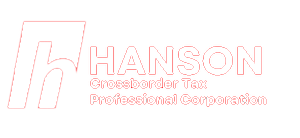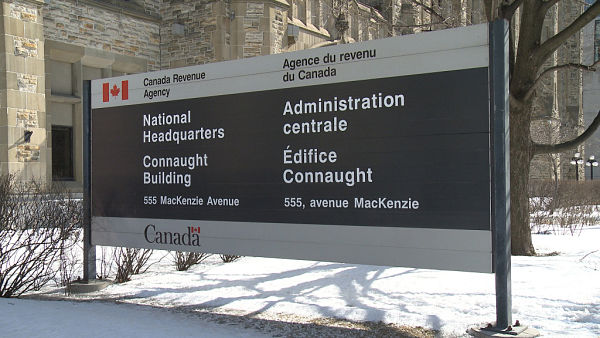Updates to COVID -19 Canadian Responses for Business Owners – May
With the full reopening of the Canadian economy still a moving target due to Covid-19, the federal government continues to update its stimulus and relief measures. In this edition of our Covid-19 Canadian Responses series, we briefly outline updates to existing programs and the introduction of new programs for Canadian businesses that have come about since our last update on April 6.
The following are updates to existing programs and new programs for Canadian businesses.
Expanded Eligibility Criteria for the Canada Emergency Business Account (CEBA)
On May 19, eligibility criteria for the CEBA was expanded to make the benefit more inclusive for small, owner-operated businesses. The program now includes sole proprietors receiving income directly from their businesses, businesses that employ contractors, and family-owned corporations that pay employees through dividends.
Under the new eligibility criteria, your business qualifies if you have:
- Less than $20,000 per month in payroll costs
- A business operating account at a participating financial institution
- A Canada Revenue Agency business number and up-to-date tax returns
- Eligible non-deferrable expenses between $40,000 and $1.5 million (e.g. rent, property taxes, utilities, and insurance).
Further details and launch date are yet to be released.
Updates to Canada Emergency Wage Subsidy (CEWS)
On May 15th, it was announced that the CEWS program will be extended by an additional 12 weeks to August 29, 2020. In addition, eligibility for CEWS will be expanded to include the following groups:
- Partnerships up to 50-per-cent owned by non-eligible members
- Indigenous government-owned corporations that are carrying on business and partnerships where partners are Indigenous governments and eligible employers
- Registered Canadian Amateur Athletic Associations
- Registered Journalism Organizations
- Private colleges and schools, including arts schools, driving schools, language schools or flight schools.
Proposed legislative amendments to CEWS include:
- Flexibility for employers of existing employees who were not regularly employed in early 2020 (e.g. seasonal employees)
- Appropriate application to corporations formed on the amalgamation of two predecessor corporations
- Better alignment of the treatment of trusts and corporations when determining eligibility for CEWS.
Updates to Work-Sharing (WS) Program
WS provides EI benefits to eligible employees who agree to reduce their working hours and share available work until their employer recovers from the financial impacts of Covid-19. The program is a formal agreement between employers, employees, and the federal government. The maximum possible duration for an agreement was recently extended from 38 weeks to 76 weeks. Eligibility requirements for employees have also recently been expanded.
Eligibility of Employers
Your business must be a year-round business operating in Canada for at least one year, be a private business or a publicly held company, and have at least two eligible employees. Eligibility was recently extended to include Government Business Enterprises (GBEs) or public corporations as well as not-for-profit organizations impacted by COVID-19.
You are ineligible for WS if business is reduced due to a labour dispute, seasonal shortage of work, or a recent increase in workforce. Businesses with shareholders who direct the company and hold 40% or more of voting shares, those operating for the sole purpose of administering government programs/activities (i.e. municipalities, Government Agencies, etc.), and the self-employed are also ineligible.
Eligibility of Employees
Employees must be year-round, permanent, full-time or part-time employees essential to day-to-day operations of the business, eligible for EI, and agreeable to reducing their normal working hours and sharing available work. Eligibility was recently extended to include employees essential to the recovery and viability of the business (e.g. IT, sales, marketing, etc.).
Ineligible employees include seasonal employees, summer / co-op students, casual or on-call hires, senior leadership and those who hold more than 40% of the voting shares in the business, and the self-employed.
Large Employer Emergency Finance Facility (LEEFF)
The LEEFF program will offer bridge financing to Canada’s largest for-profit employers, with the exception of those in the financial sector, through the Canada Development Investment Corporation (CDEV), along with Innovation, Science and Economic Development Canada and the Department of Finance. The program is open to certain not-for-profit businesses with annual revenues of $300 million or higher (i.e. airports). Eligible businesses must request financing of $60 million or more, have significant operations / workforce in Canada, and cannot be involved in active insolvency proceedings. Details to come.
Canada Emergency Commercial Rent Assistance (CECRA)
Through the CECRA program, qualifying commercial property owners can apply for forgivable loans to cover 50% of rental payments made by eligible small businesses impacted by Covid-19 for the months of April, May and June. If the property owner reduces the small business tenant’s rent by at least 75% under a rent forgiveness agreement, which includes conditions not to evict the tenant while the agreement is intact, the loan can be forgiven. The small business tenant does have to cover up to 25% of the rent. To be eligible, the small business has to be paying less than $50,000 in monthly rent and ceased operations or experienced at least a 70% decrease in revenues due to the pandemic. CECRA will also be available to not-for-profit and charitable organizations. The CECRA application portal opens on May 25, 2020.
Regional Relief and Recovery Fund
The Canadian government is providing almost $962 million to businesses and organizations that are considered vital to the regional economy through the Regional Relief and Recovery Fund (RRRF). The fund is targeted to businesses and organizations that require assistance to recover from the pandemic and are unable to access existing support measures. Applications for the RRRF go through your Regional Development Agency.
Other Funding Programs for Small Business:
- Industrial Research Assistance Program (IRAP) funding – $250 million to assist innovative, early-stage companies unable to access other business supports through IRAP.
- Futurpreneur Canada – $20.1 million in support for Futurpreneur Canada to further support young Canadian entrepreneurs facing challenges due to the pandemic.
- Northern Business Relief Fund – $15 million in support for businesses in the territories facing impacts of the pandemic.
- Women Entrepreneurship Strategy (WES) Funding – $15 million in funding through WES, available for existing WES Ecosystem Fund recipient organizations to assist women entrepreneurs facing hardship due to the pandemic.
If you have any questions about the contents of this missive, please feel free to reach out to me at any time.
Where to find us
4-209 Speers Road
Oakville, ON, L6K 0H5
Canada
Contact Us
Meetings are by appointment only.
Phone: +1 855 640 1730
Local: +1 905 845 1194
Fax: +1 833-203-9641
Email: mail@hcbtax.com




